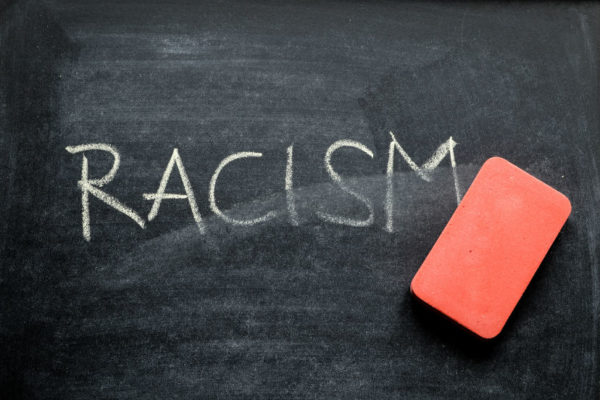Few topics are more difficult to have an honest conversation about than race. In 1997, President Bill Clinton created an initiative that started a national conversation about race. It was an ambitious agenda, yet one that offered hope that America could truly begin the process of racial healing.
Fast forward to 2019, and the LBJ Presidential Library is continuing the dialogue on race with its Summit on Race in America. Although the discussion will be national in focus, the conference provides Texans an opportunity to reflect on the state of race relations in our state.
But having a candid conversation about race is easier said than done given that Texans, like most Americans, tend to prefer avoiding difficult conversations about race. Texans are as divided by race, and about racially charged issues, as ever.
Consider the removal of Confederate monuments. The debate about Confederate memorials reached a critical point during the protest of a white supremacist rally in Charlottesville, Virginia, that left one person dead. Shortly afterward, universities across the country removed Confederate monuments from their campuses.
In response to the removal of Confederate monuments at Texas universities, Texas House Bill 583 proposes making it a criminal offense if any person “removes, relocates, or alters” a Confederate monument, punishable by up to $1,000 in fines and a year in jail.
According to a University of Texas/Texas Tribune Poll, many Texas voters (56%) don’t want to remove Confederate memorials or put them in museums. But looking beyond those numbers, the poll also revealed a stark racial divide, with 60% of black voters wanting to remove or relocate the Confederate memorials, but 64% of white voters and 53% of Hispanic voters wanting to leave them in place.
This type of racial divide is not limited to Confederate memorials. High-profile incidents across the state of police shootings of unarmed black people (e.g., Larry Jackson Jr., Jordan Edwards, Botham Jean) and police brutality (e.g., Dajerria Becton, Sandra Bland, Breaion King) are especially racially polarizing.
A poll conducted by the Institute of Urban Policy Research and Analysis found that 82% of black Texas voters believed that the unarmed deaths of black people reflect institutional racism, compared with 55% of Latino voters and only 33% of white voters.
Presented as an issue of protecting national sovereignty, the immigration debate is racially polarizing and has long been fueled by anti-immigrant racism. Texas is ground zero for the national debate on immigration.
Texans views about immigration, and specifically regarding the border wall, are also racially divided. According to a recent University of Texas/Texas Tribune Poll, while 64 percent of white voters support a wall, only 28 percent of black voters and 34 percent of Hispanic voters support a wall.
But it is not all negative news for Texas. A recent study ranked Texas as the fifth most racially integrated state. Among states with the most racial progress, Texas was ranked second.
Another poll found that the majority of Texas voters support the topics of race and racism being discussed in public education.
These findings, however, do not outweigh that there continues to be significant racial differences in perceptions among Texas voters about the racial climate. Many white voters believe that discrimination has become less common over the past five years, compared with only 31% of black voters and 38% of Latino voters.
That the Summit on Race in America is being sponsored by the LBJ Library is not without irony, given that Lyndon Johnson was considered both a civil rights hero and a racist. Yet he also passed the Civil Rights Act and Voting Rights Act, two of the most racially progressive and consequential laws in this country’s history.
We need to improve race relations in Texas, and to do this, we do not need to be perfect. We do not need to create historic legislation. We do not need to be a civil rights hero.
More of us need to educate ourselves about the issues affecting people of color. More of us need to understand the policies and proposed laws and the true impact they can have on people of color. We should not support politicians or policies that are racially divisive. Conversations about race such as the Summit on Race in America provide a good starting point.
Kevin Cokley is the Oscar and Anne Mauzy Regents Professor of Educational Research and Development and director of the Institute for Urban Policy Research and Analysis at The University of Texas at Austin. He is also a fellow of the UT System Academy of Distinguished Teachers.
A version of this op-ed appeared in the Austin American Statesman and the Waco Tribune Herald.




